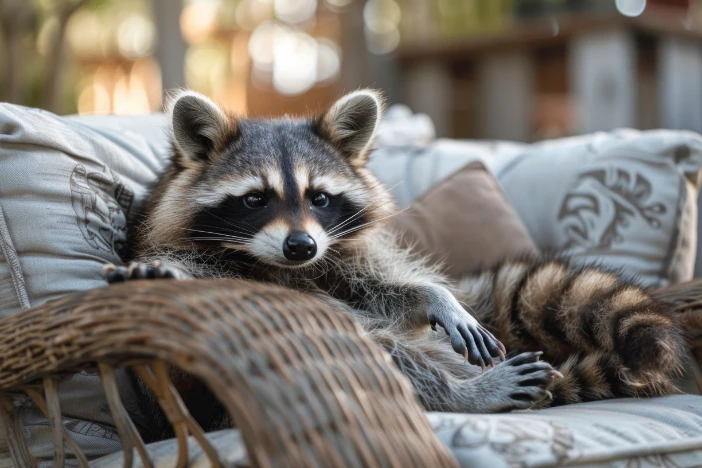
Protect your furniture from insects, birds & rodents
In addition to exposure to the elements, patio furniture can be damaged or marred by small living creatures. Gardens, backyards and other outdoor spaces teem with bugs, fowl and little furry critters looking for sustenance and shelter. Safeguarding your outdoor lounge and dining sets against these pests improves their longevity and aesthetic appeal.
General maintenance steps such as keeping items clean and covered when not in use help thwart these bothersome creatures. Also, keeping outdoor areas clean from trash, food scraps, and standing water will make your space less appealing to them. The final section of our guide touches on some solutions to combat specific types of pests.
Routine cleaning schedule to deter pests
Outdoor furniture can quickly become a haven for insects, rodents, and spiders. It’s especially vulnerable when food residue, crumbs, or moisture are left behind. To prevent infestations and extend the life of your furniture, it’s important to incorporate targeted, consistent cleaning routines. Pests often nest in hidden crevices, under cushions, and in the joints of tables and chairs, making these areas key focus points. The table below offers a detailed maintenance schedule designed specifically to deter common outdoor pests.
| Area | Recommended Action | Frequency |
|---|---|---|
| Wipe Frames & Tabletops | Clean surfaces with mild soap and water to remove food residue, grease, bird droppings, and sugary spills. | Weekly or after meals/gatherings |
| Shake or Beat Cushions | Shake or tap cushions to dislodge insects, spider eggs, and larvae hiding in seams or fabric folds. | Weekly |
| Inspect for Webs & Nests | Check under armrests, in chair joints, inside hollow legs, and under tables for cobwebs, egg sacs, or wasp nests. | Every 2 weeks |
| Clean Beneath Furniture | Sweep or hose off the patio or deck under and around furniture to remove food crumbs, leaves, and standing water. | Monthly |
| Disinfect Eating Areas | Wipe down dining furniture with a diluted vinegar or disinfectant solution to repel ants and flies. | Weekly or after use |
| Seal or Repair Damage | Seal cracks in wooden furniture and repair torn fabric or frayed rope where bugs may hide. | Seasonally or as needed |
| Cover When Not in Use | Use fitted covers to protect furniture from bird droppings, insects, and wind-blown debris—but make sure they’re breathable. | Daily (overnight) or during off-season |
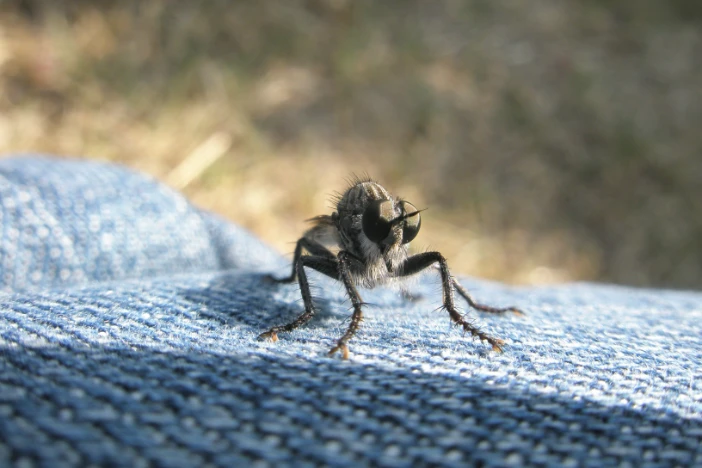
Insects
Patios provide many places for bugs to nest or inhabit. Crawling and biting insects are especially attracted to nooks and crevices in outdoor wicker chairs, tables and sofas. Also, lights that produce heat attract many flying insects, which can sting or annoy you and your guests.
Helpful Article
We recommend reading our article How to Get Rid of Insects for insight into taking care of specific bugs.
Signs of spiders and other insect activity
Look for spider webs and egg sacs in the corners where the legs and frames meet. Don’t forget to check underneath seating, as many bugs like dark and moist out-of-the-way spaces. You may see white or brown spots (bug droppings), light debris, or clumps of dirt or mud on or near tables where food and drinks are usually served. Flying insects like flies, bees, and mosquitoes are easier to see during the day. You might also find some dead ones under hot lamps at night.
Remedies for insects
The best way to deter bugs (aside from regular cleaning) is through smells that are repellant to them. Essential oil sprays or plants like mint, lavender, rosemary, and eucalyptus are good choices. They keep insects away and add nice scents to your outdoor space. Marigolds are blooming flowers that work, along with cedar chips which spiders do not like. Burning citronella lamps will keep flies and mosquitos at bay. Using LED lights will eliminate the heat that some flying insects are drawn to. Using a mix of these insect-repelling methods can keep spiders and other bugs away. This will help keep your deck furniture clean and make your outdoor space more enjoyable.
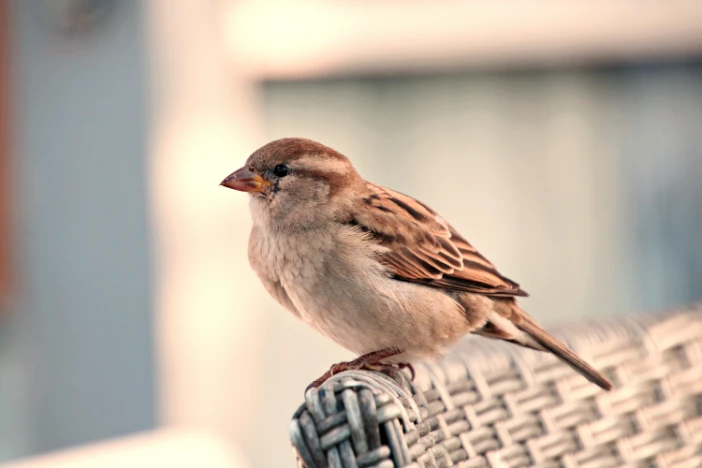
Birds
While light chirping may add to the pastoral ambiance of your backyard, birds can also be annoying, and troublesome and damage outdoor furnishings. Thankfully, there are several ways to keep them from ruining your next barbecue or casual get-together.
Evidence of birds
Droppings are the telltale sign that you have an avian issue. Bird poop is unsightly and can permanently damage finishes and fabrics if not taken care of immediately. You may also see talon scratches on seating frames or puncture marks in upholstery.
Bird remedies
There are several types of bird repellents, although will make your outdoor space bird free. You can keep birds away by scaring them, making them uncomfortable, removing attractions or luring them away. Predator decoys such as fake owls or eagles will make smaller birds think twice before invading your outdoor setting. Periodically move them so pestering birds don’t get used to them in one place. Birds are wary of shiny and moving things, so reflective pinwheels or hanging small mirrors, CDs or metallic wind chimes work well. The chimes also make sounds that disorient them as do ultrasonic devices.
As with insects, birds don’t like particular smells. Peppermint and chili pepper sprays or plants are effective bird deterrents. Eliminate nearby spaces where birds might nest, perch or hide by pruning trees and shrubs. You might also place a bird feeder far away from where you plan to entertain or dine.
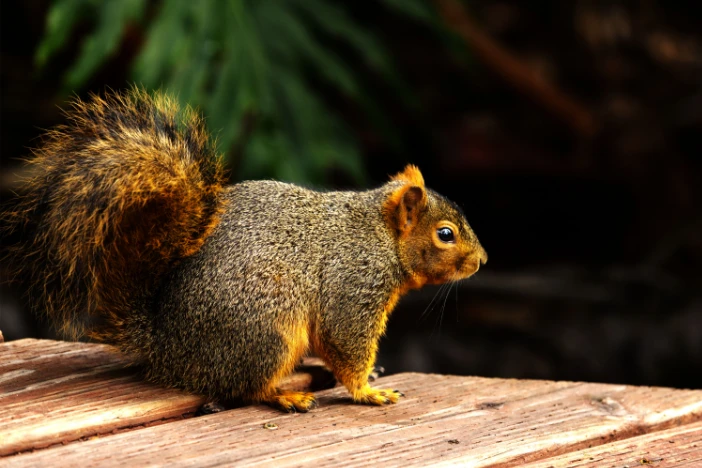
Rodents
Gnawing rodents with claws can inflict severe damage on outdoor furniture as they gather materials for their nests. This destruction has financial implications as well, since it is not usually covered by manufacturer warranties. Squirrels, mice and raccoons also carry diseases that can make your family or pets sick. Many of the same deterrents for bugs and birds work for rodents as well.
Signals of rodent activity
The most prevalent damage from rodents is from chewed-up cushions and torn-up wicker fibers. The foam stuffing and thin fibers resemble natural materials they typically use to build and line their nests. You may also find traces of excrement or evidence of their efforts to access seeds around bird feeders.
Counteracting rodents
Hawk and owl decoys scare these small rodents but, like birds, you need to rotate the location and or type of predator. Plant or spray mint, lavender, red pepper, or eucalyptus or burn citronella to make your backyard less inviting. Install solar-powered ultrasound devices or motion-activated sprinklers. These can help keep rodents away if they come onto your property. If you have a dog, let them roam and bark around the house for a little while each day. They’ll either chase squirrels and mice away or give them pause. Make sure that any bird feeders are only accessible by birds and not small prying paws or jaws. You might lure rodents away by nailing corn cobs to fencing or trees set away from where you set lounge or dining furniture.
If these non-invasive solutions don’t work for your pest problem, you might need to use insecticides. Alternatively, you could hire professionals for help. There are also more invasive measures such as predator urine and surface spikes.
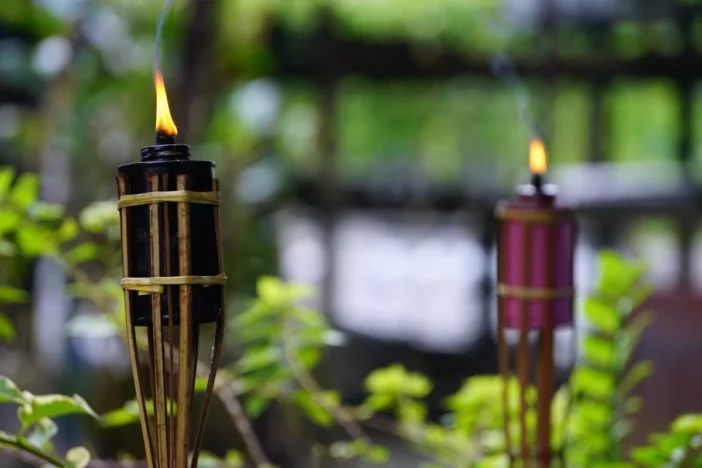
Safety tips for using pest deterrents
When using pest deterrents around outdoor furniture, it’s important to strike a balance between effectiveness and safety. This is critical if children or pets use the same space. Many common repellents can be risky if not used correctly. This includes essential oils, chemical sprays, predator scents, and ultrasonic devices.
Essential oils
Essential oils, such as peppermint, citronella, and eucalyptus, are frequently used to repel insects, spiders, and rodents. However, while they are natural, they are not always harmless. Many essential oils are toxic to pets if ingested or absorbed through the skin—particularly to cats and dogs. To use these safely, apply them sparingly and only in areas that pets and children cannot access, such as the underside of furniture or elevated, enclosed corners. Avoid placing oil-soaked cotton balls or diffusers in reach of paws or curious hands.
Sprays
Citronella candles or sprays should always be positioned out of direct reach. Citronella is safer than some chemical repellents. However, it can still irritate the skin, eyes, or stomach if touched or swallowed. Chili pepper sprays are often used to keep squirrels and raccoons away. However, they can cause pain if they touch skin or eyes. This is especially dangerous for children. Always label any spray bottles clearly and store them away from play areas and seating zones.
Predator urine
Predator urine products (like fox or coyote urine used to repel rodents and rabbits) should be handled with caution. These products often come in granular or liquid form and may carry strong odors or bacteria. Avoid applying them near areas where kids or pets play or rest, and wash hands thoroughly after handling.
Ultrasonic repellers
Ultrasonic pest repellers are sold as safe, but they might bother dogs, cats, rabbits, and other small animals. These animals can hear higher frequencies. If you use these devices near outdoor seating areas, monitor your pets’ behavior. If they show signs of stress or avoidance, consider relocating the device or using alternative methods.
Finally, always read and follow label instructions for any pest control product—natural or synthetic. Where possible, choose pet-safe and child-safe versions. Prioritize physical deterrents (like furniture covers, netting, or sealing cracks) when safety is a concern. Talk clearly with your family about what has been used and where. This can help prevent accidental exposure. It will also keep your outdoor space free of pests and safe for everyone.
Safeguarding your outdoor furniture is worthwhile
Taking care of your patio dining and lounge sets is time-consuming and takes effort. However, cleaning and maintaining everything will help increase its longevity. If you invested in premium pieces, you don’t want to replace them every season. Not only will you ensure you have furnishings you can be proud of but they won’t break down either.

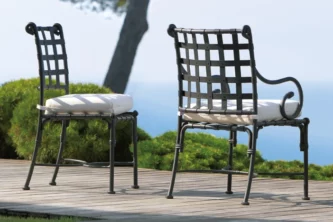
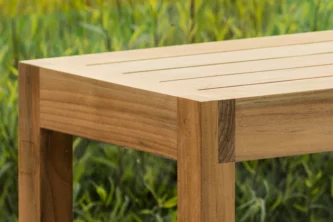
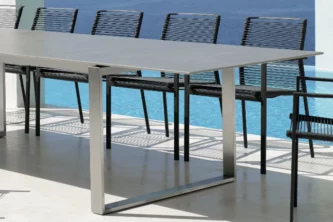
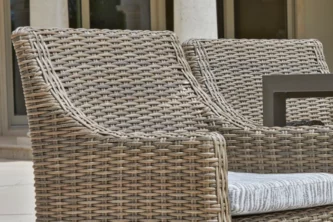
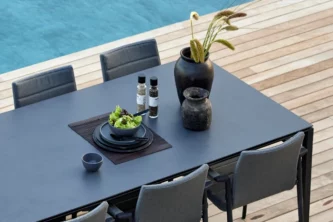
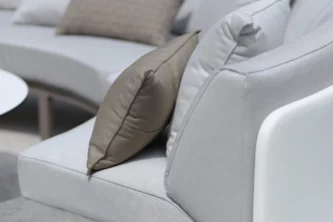




Leave a Reply